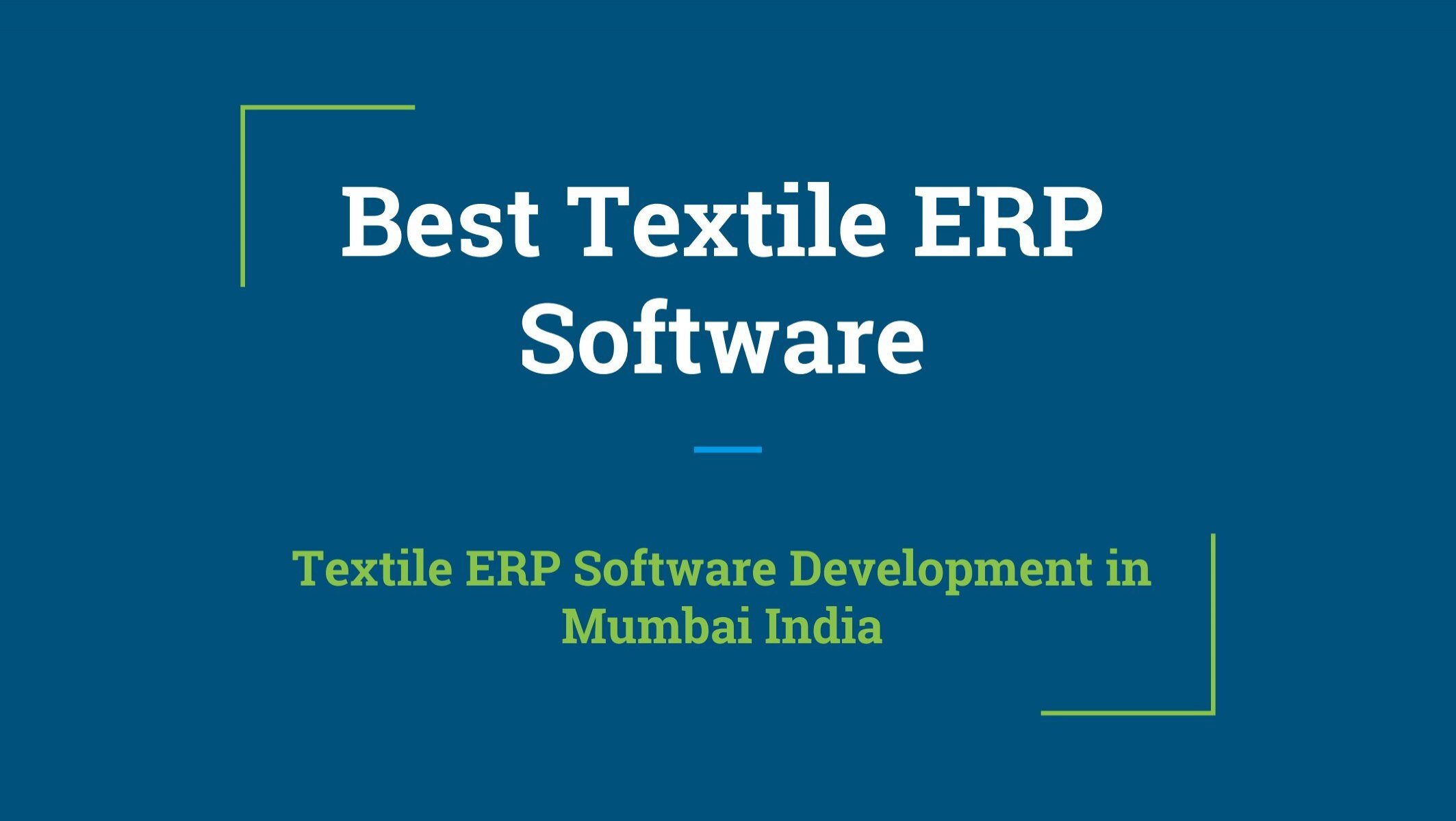
Our software is now updated as per the latest GST changes. Take free demo now

Mumbai, Maharashtra — long known as the Manchester of India — stands at the center of the country’s booming textile and garment manufacturing ecosystem. From cotton mills and fabric wholesalers to apparel exporters and fashion brands, the city has evolved from traditional handlooms to cutting-edge digital production systems.
In 2025, the textile industry in Mumbai isn’t just about threads and looms — it’s about technology, data, and efficiency. And the tool driving this transformation is ERP (Enterprise Resource Planning) software.
Digify Soft Solutions has emerged as a trusted leader in providing industry-specific ERP software for textile businesses — helping manufacturers, retailers, and exporters optimize every stage of their workflow.
The textile business operates on complex layers — from procurement of raw materials to production, inventory, quality control, and global distribution. Manual processes often lead to inefficiencies, errors, and delays. ERP systems solve this by uniting all operations in one powerful, automated platform.
Key Benefits of ERP in Textiles:
Real-time tracking of production, inventory, and orders
Streamlined procurement and supply chain management
Automated costing and pricing modules
Fabric roll management with batch tracking
Integration with accounting, CRM, and POS systems
Cloud-based dashboards for multi-location management
To stay ahead in Mumbai’s competitive textile landscape, businesses are embracing comprehensive digital tools. Below are the core modules revolutionizing textile operations:
ERP integrates all critical functions — finance, production, inventory, and sales — providing total visibility and control.
Digify Soft Solutions offers specialized ERP modules designed for textile manufacturing, dyeing, finishing, and retailing.
For textile retailers and garment showrooms, POS systems help manage billing, discounts, and real-time stock updates, while syncing seamlessly with inventory and accounts.
Automated accounting ensures accurate financial reporting, GST compliance, and simplified vendor billing.
The textile industry relies heavily on inventory — from fabrics to trims and accessories. Smart inventory tools track every roll, color, and size variation precisely.
CRM systems help textile businesses maintain strong relationships with buyers, distributors, and fashion brands — ensuring repeat orders and customer loyalty.
For brands selling through multiple channels (offline, online, and wholesale), smart retail software unifies sales data, stock availability, and performance insights.
ERP-integrated omnichannel platforms allow textile businesses to sell across showrooms, eCommerce stores, and B2B portals — all synchronized in one interface.
Lead tracking systems assist in handling new business inquiries, distributor partnerships, and export opportunities efficiently.
Factories and showrooms with hundreds of employees use payroll software to automate attendance, overtime, and salary disbursement securely.
Textile training institutes and fashion academies benefit from ERP tools that streamline student management, scheduling, and performance tracking.
Let’s take a look at how ERP drives success across the textile value chain:
| Stage | ERP Application | Benefit |
|---|---|---|
| Raw Material Procurement | Automates supplier management and purchase orders | Reduces waste and delays |
| Production Planning | Tracks dyeing, cutting, stitching, finishing | Improves production accuracy |
| Inventory Control | Monitors fabric rolls, finished goods, accessories | Prevents overstock or stockouts |
| Quality Assurance | Digitally records inspection data | Ensures consistency |
| Sales & Distribution | Connects orders with warehouse and logistics | Enhances delivery performance |
| Finance & Accounting | Centralizes billing, tax, and expense management | Provides clear financial insights |
The combination of ERP, AI, and data analytics is reshaping how Mumbai’s textile and fashion ecosystem functions. Designers, exporters, and manufacturers now collaborate digitally, using ERP to maintain transparency, reduce costs, and improve customer satisfaction.
Example Use Case:
A fabric manufacturer in Bhiwandi uses Digify Soft ERP to:
Manage orders from domestic and international clients
Track each dye batch and color variant
Automate quality checks
Sync invoices with accounting in real-time
Monitor profits across different product lines
This digital backbone empowers textile businesses to scale globally while maintaining operational excellence.
Digify Soft Solutions continues to lead the textile digital revolution in India by offering tailor-made ERP and business software solutions.
What Sets Digify Soft Apart:
Industry-specific ERP for Textiles, Garments & Apparel
Real-time reporting and analytics
Seamless integration with POS, CRM, and Accounting
Scalable cloud-based platform
Excellent support and custom development
Industries Served:
Textiles & Apparel
Finance & Trade
Smart Retail & E-Commerce
Telecommunications & IT
Entertainment (Bollywood)
The future of the textile industry in Mumbai depends on digital innovation and operational intelligence. From yarn to yardage — ERP systems are the invisible thread that ties it all together.
With its expertise and commitment to excellence, Digify Soft Solutions stands as a trusted technology partner for textile companies aiming to boost efficiency, scalability, and global competitiveness in 2025.
🔗 Visit Now: www.digifysoft.in
📍 Location: Mumbai, Maharashtra
📞 Contact: Available via the website
© Copyright digifysoft 2025.